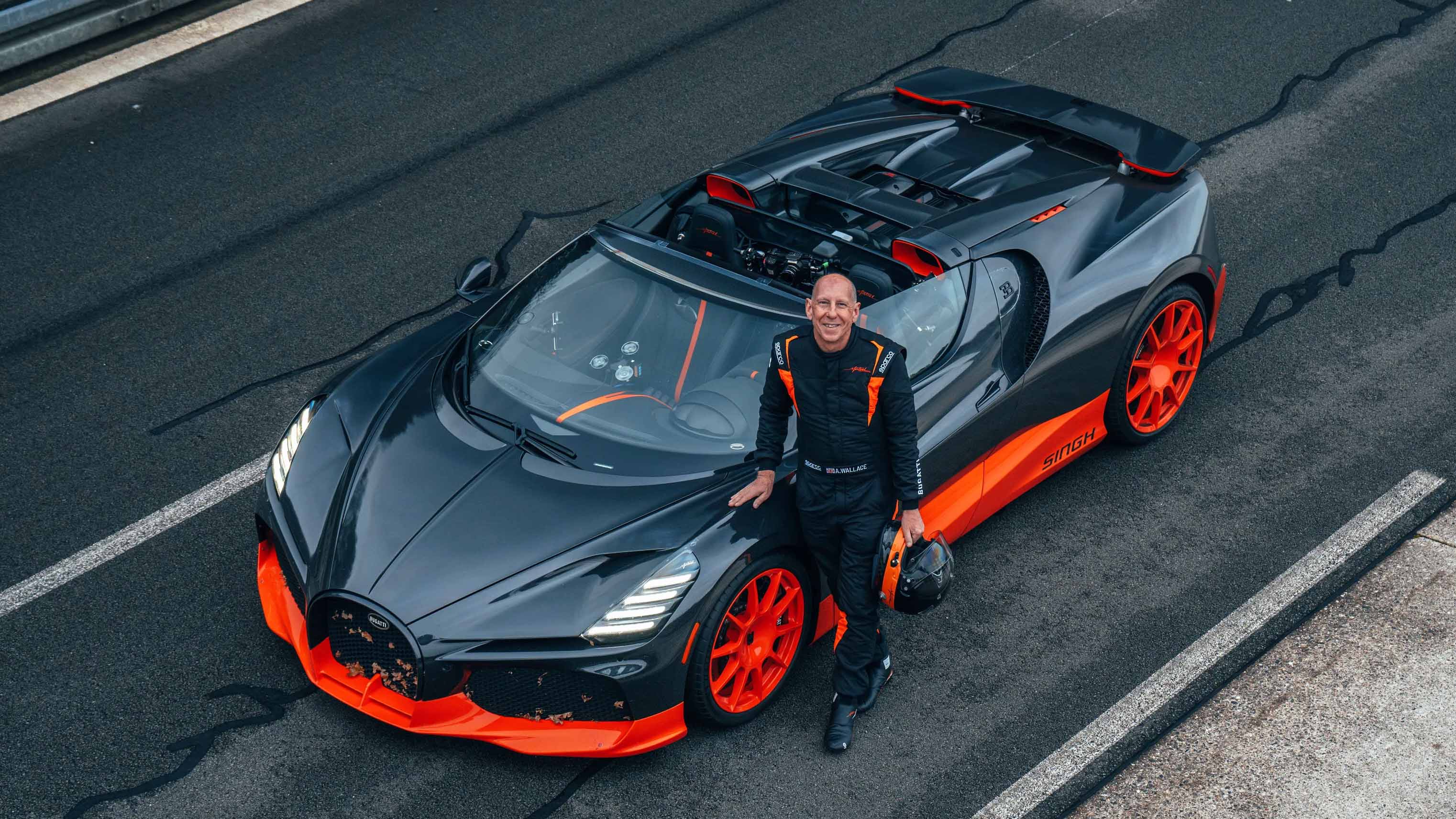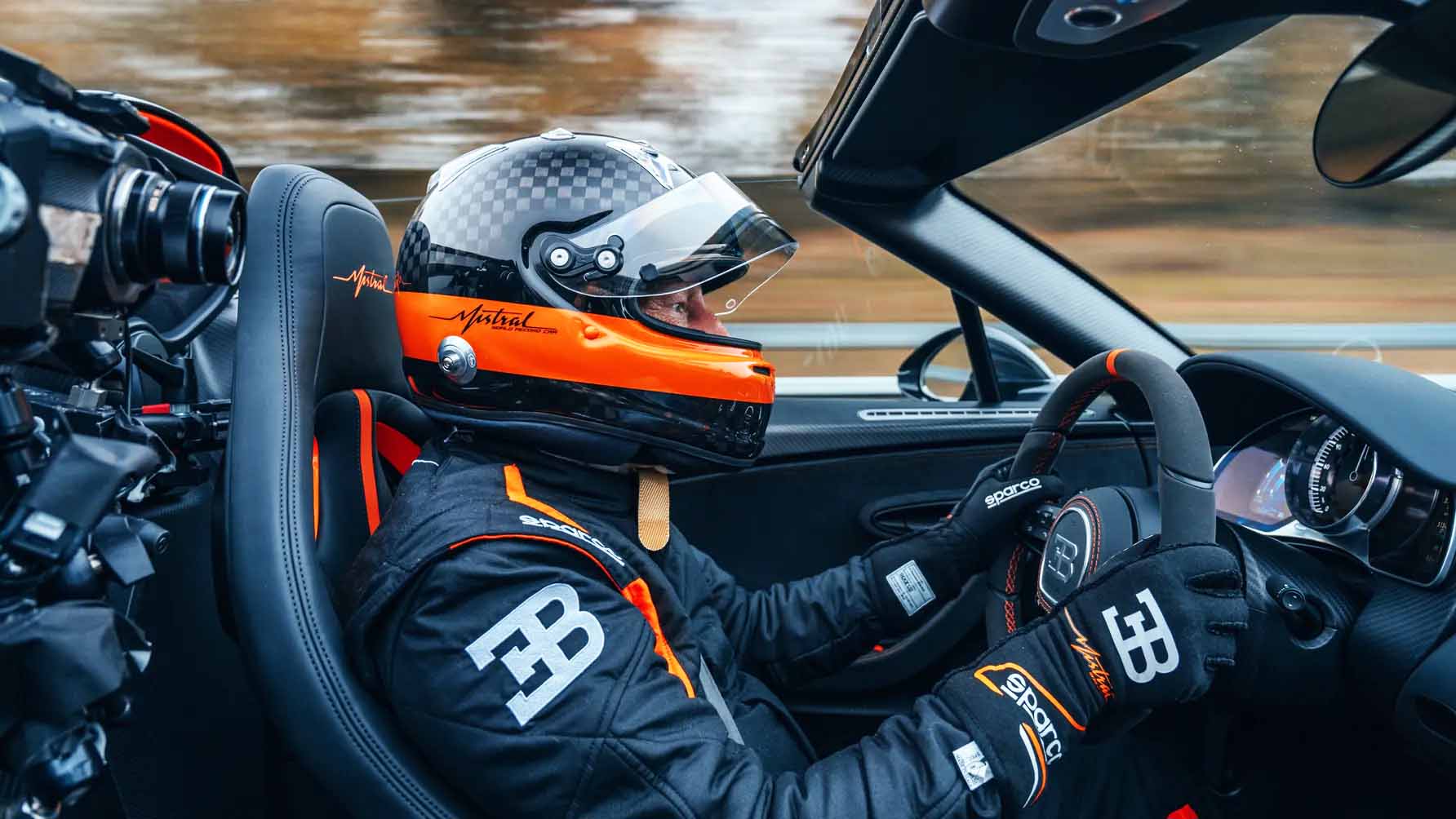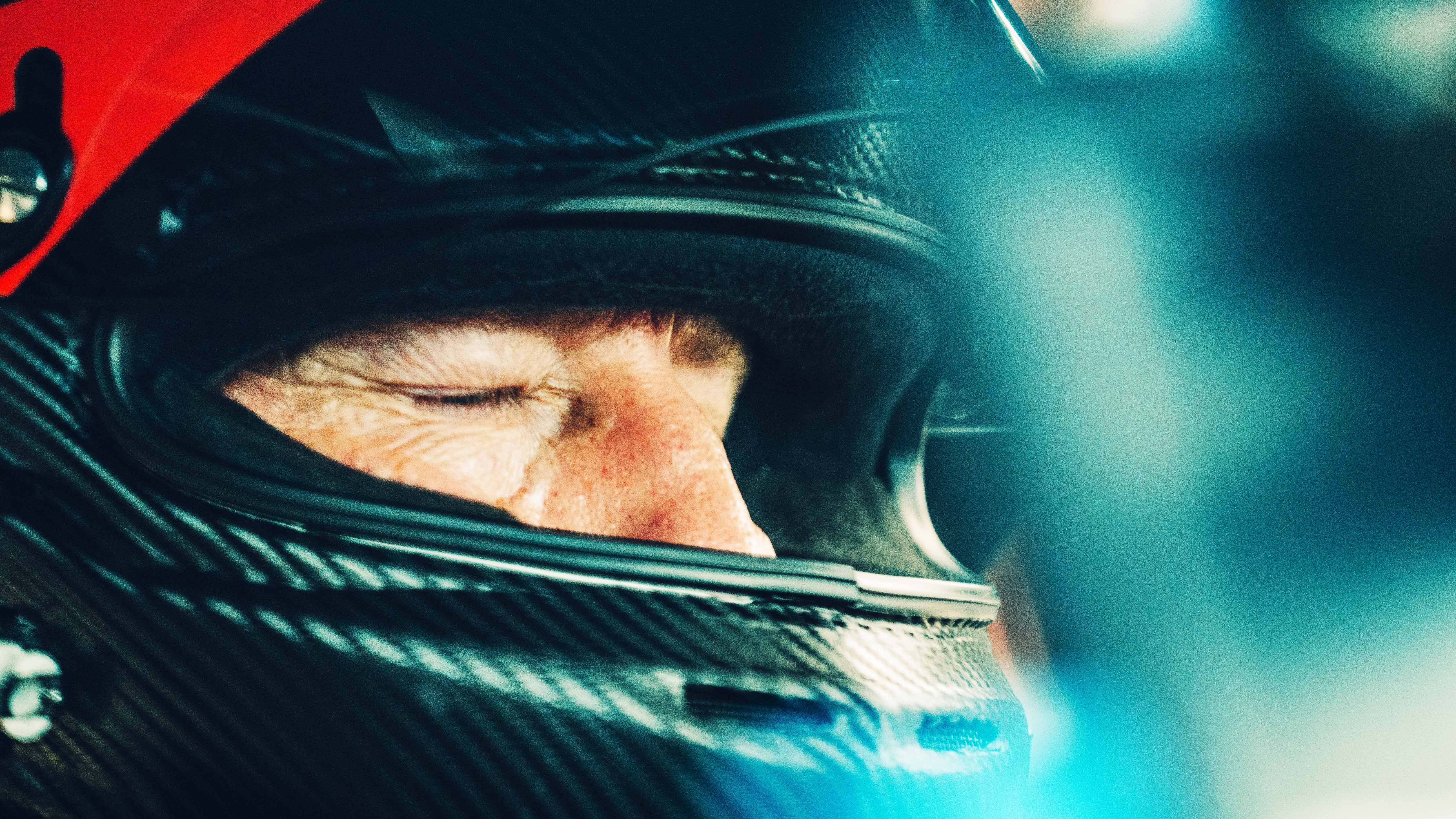
How to do a 300mph+ top speed run: Bugatti's Andy Wallace reveals his secrets
Andy Wallace has many Bugatti accolades to his name, here's what the king of speed has taught us
Only one man has blasted past the magical 300mph barrier in a production car, lived to tell the tale and kept his lunch down. Andy Wallace is a titan of top speed runs, a vanquisher of vmax and one of the nicest blokes you’ll ever meet. Here’s everything he’s taught us.
1. Jump to it
Suppose you could call this bit ‘expect the unexpected’ because Ehra-Lessien (the venue for the Chiron Super Sport’s 304.8mph record run) was “repaved halfway round the bit where you do vmax, and there’s a join between the new surface and the old bit”, Andy explains. “I was coming back and saying to the engineers ‘Oh, the car’s quite stable over the jump’ and they were getting quite annoyed, saying ‘What jump are you on about? It can’t be off the ground’. They looked at the data and came back saying ‘Oh, you’re right – it’s a jump’. That was at about 270mph.”
2. Hold on tight
At 304mph the tearing force acting on the tyre is 7,000kg – three and a half Chirons. The gyroscopic mayhem caused by 4,100rpm wheels locks out the front steering geometry and scrambles the steering’s ability to self-centre. Apply too much lock and you might not be able to pull it back straight. To be fair, aeroplanes normally fly at this kind of speed, so you’d expect some unusual handling traits.
3. Fit for purpose
The record car was no ordinary Chiron. The Super Sport 300+ Prototype was 250mm longer with a significantly lower ride height to reduce drag. At the rear, the longtail had a reduced cross section (to aid aero and minimise drag), while the rear wing and air brake were removed, replaced with a static unit.
4. Screw the rules
The Guinness speed record rules are as follows. The car must achieve the speed in two directions on the same road within 60 minutes, with the average of the two speeds the result. Andy only ran the speed in one direction. Bugatti says the main reason for this is that, after decades of cars pounding over its surface in the clockwise direction, the tarmac structure has rolled that way. Run it in the opposite direction, and you're working against the grain, causing huge heat build up in the tyres.
5. Balance is everything
While you want to keep the car on the ground, you can’t just throw downforce at it. Downforce means drag, which requires more power, and greater heat through the tyres. What you want is a balance between two tonnes of lift and two tonnes of negative lift (downforce); in essence, four tonnes of force trying to rip the chassis in two. However, if balanced properly, vmax sees merely the static weight of the car keeping it on the ground, reducing tyre load, tyre heat and the chances of a crash.
Top Gear
Newsletter
Thank you for subscribing to our newsletter. Look out for your regular round-up of news, reviews and offers in your inbox.
Get all the latest news, reviews and exclusives, direct to your inbox.
Trending this week
- Car Review
Toyota Urban Cruiser










